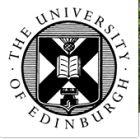Literal translation of poetry is in reality a solecism. You may construe your author, indeed, but if with some Translators you boast that you have left your author to speak for himself, that you have neither added nor diminished, you have in reality grossly abused him, and deceived yourself. Your literal translation can have no claim to the original felicities of expression; the energy, elegance, and fire of the original poetry. It may bear indeed a resemblance, but such a one as a corps in the sepulchre bears to the former man when he moved in the bloom and vigour of life.
Nec verbum verbo curabis reddere, fidus
Interpres——
was the taste of the Augustan age. None but a Poet can translate a Poet.
William Julius Mickle, The Lusiad; Or, The Discovery of India: an Epic Poem (1776), Introduction, pp. cxlix–cl.


